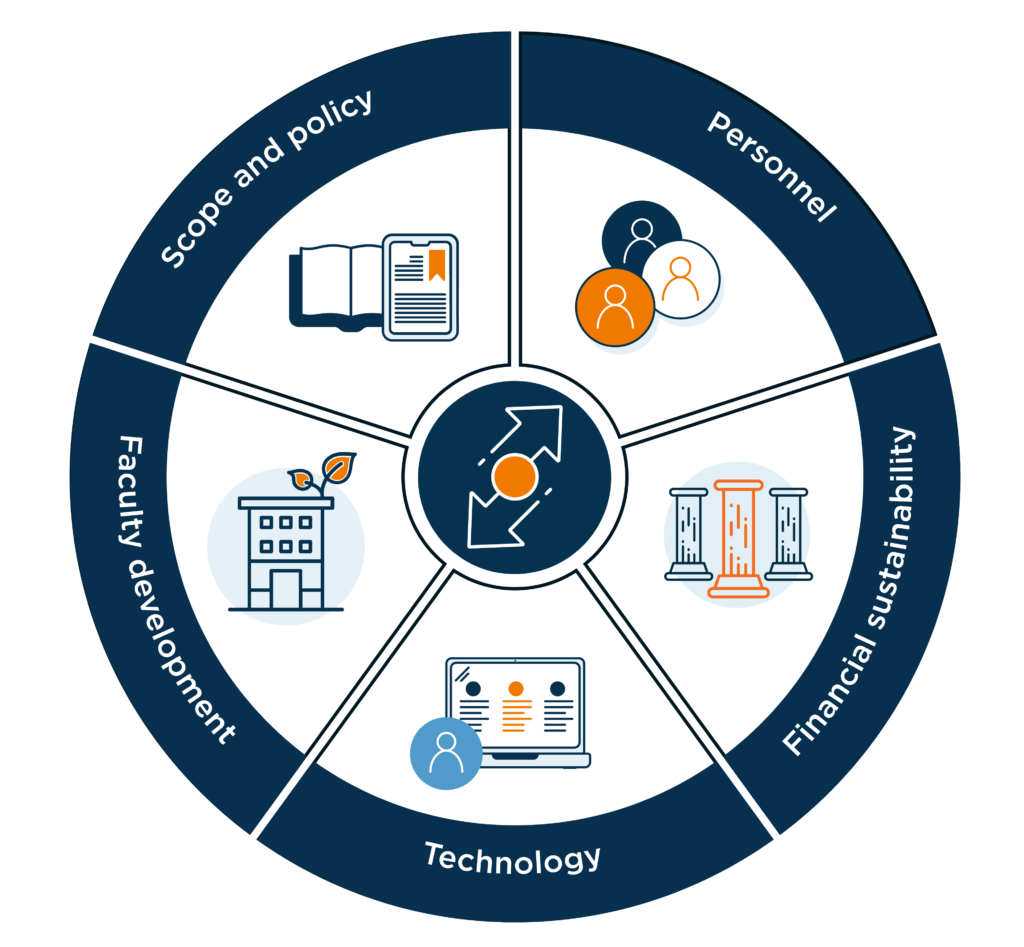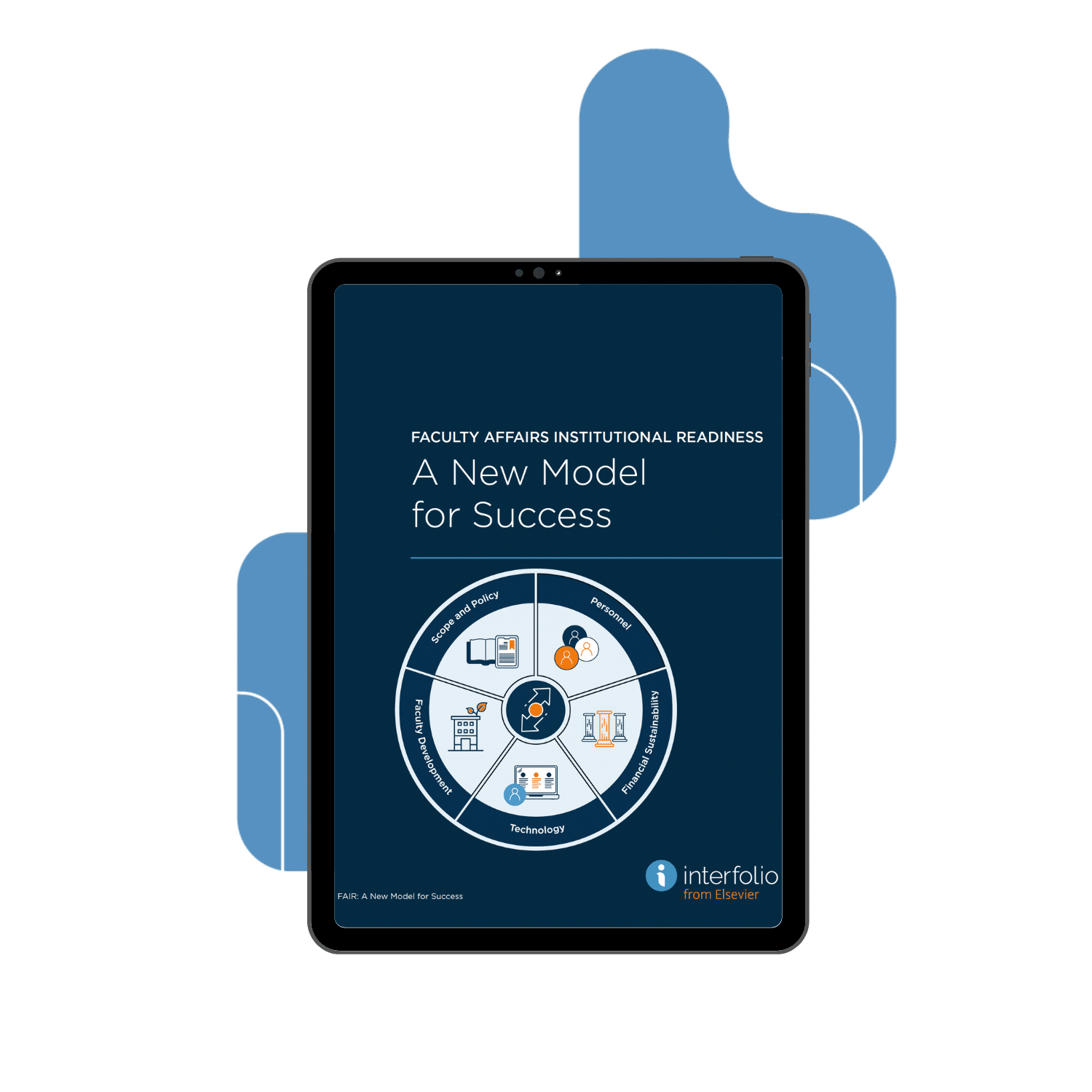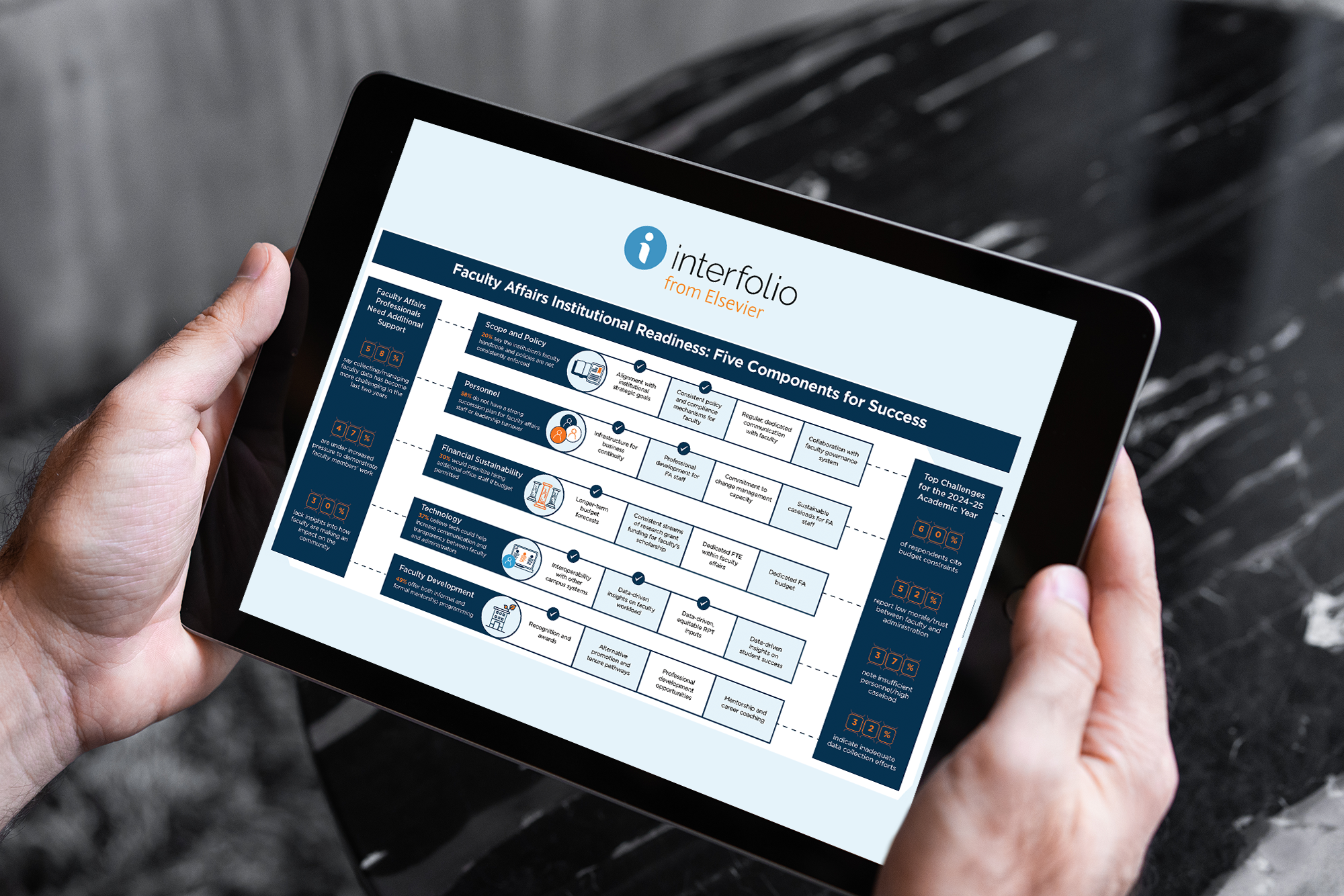Take the Faculty Affairs Institutional Readiness (FAIR) Self-Assessment
Support Excellence in Your Faculty Affairs Office
Faculty affairs, as a profession, is growing. But without a professional organization or formalized training available, how can you learn from peers and build upon existing best practices?
The new Faculty Affairs Institutional Readiness (FAIR) framework offers a self-assessment tool to reflect on best practices across five main components:
- Scope and Policy
- Personnel
- Financial Sustainability
- Technology
- Faculty Development
Click below to take our self-assessment, which is designed to spark reflection, convey best practices, and inspire innovation among faculty affairs leaders. This tool helps assessors identify priorities, areas for improvement, and other needs that can strengthen faculty affairs at institutions of all sizes. Be sure to also share this with your campus collaborators!
After taking the assessment, you’ll be able to see how your peers at other institutions have responded and download our discussion guide to further the conversation on your own campus.

Additional Resources
White Paper: A New Model for Success
The absence of anchoring practices, training, and knowledge-sharing among faculty affairs practitioners has the potential to negatively impact student and institutional success. This white paper offers a deeper dive into the findings from our interviews of faculty affairs professionals conducted with Tyton Partners, outlining success drivers and best practices for faculty affairs offices aligned with our FAIR model.
Download the white paper to learn more about the essential functions of an effective faculty affairs office, the top concerns and challenges heard from faculty affairs leaders, and the importance of investing in this key campus office.

Infographic: The Five Components of FAIR
We bring our FAIR model together alongside results from our 2024 State of Faculty Affairs Survey, conducted in partnership with the Higher Education Recruitment Consortium (HERC). With responses from 177 faculty affairs professionals, the findings highlight the struggles and successes experienced by this essential campus office.
Download the infographic to discover the top challenges faced by faculty affairs professionals, specific drivers for success in faculty affairs, and how Interfolio can support your efforts.

How to Support Your Faculty Affairs Department
How can faculty affairs professionals showcase the value of their department, get buy-in across the institution, and be successful in their roles?
A panel of research and higher education leaders discussed the findings from our extensive research in our How to Support Success in Faculty Affairs webinar. You can also find additional details about our FAIR model on our blog. Access these insightful resources below, and be sure to share them with your colleagues!
